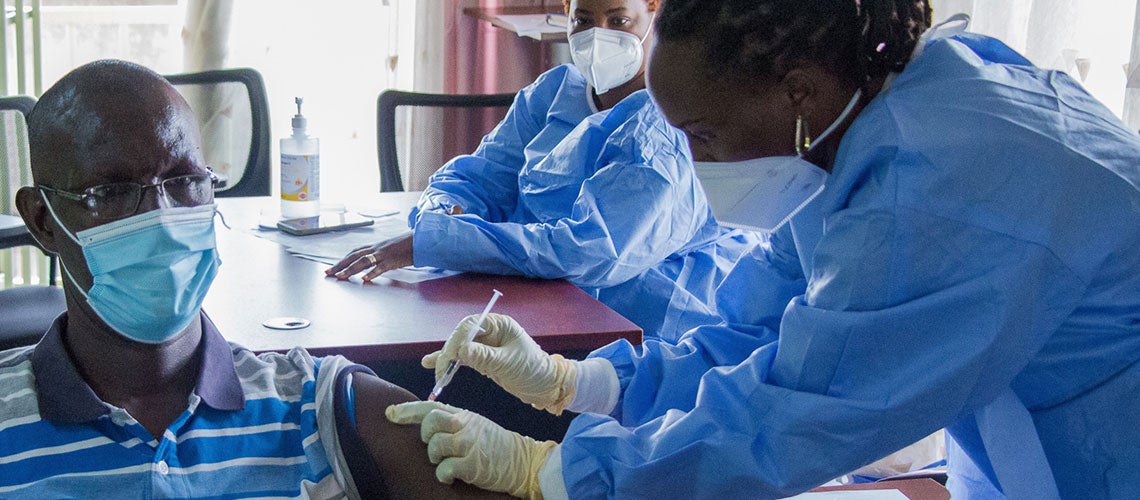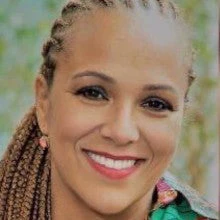 Learning from Burundi’s political pivot on COVID-19 vaccines
Learning from Burundi’s political pivot on COVID-19 vaccines
While there has been ongoing discourse about COVID-19 vaccine hesitancy among African citizens, this is in sharp contrast to the relative silence on hesitancy from a political standpoint. As countries around the world do their part to reduce the spread and severity of COVID-19 (coronavirus) through vaccinations, there remains outliers that have yet to embark on national vaccination campaigns. Burundi was one of these very few countries, until its political leadership made a major pivot to embrace global public health measures and include a vaccination pillar in its national COVID-19 response plan in September 2021.
In a matter of weeks following their change of tack, hundreds of thousands of doses began flowing to the country, including a donation of Sinopharm by the Government of China and a delivery of Johnson and Johnson doses by the United Nations Children Fund (UNICEF) through the African Vaccine Acquisition Trust (AVAT) using World Bank grant financing.
Understanding the dynamics behind Burundi’s political hesitancy (and acceptance thereafter) can help draw political economy lessons that can inform ongoing pandemic measures or future ones. Burundi’s pivot to adopting COVID-19 vaccines resulted from an unprecedented intracontinental facilitation coupled with pragmatic in-country dialogue, while delayed adoption of vaccines might have first reflected vaccine hesitancy among the general population.
Reflecting on vaccine hesitancy among the general population
Burundians’ hesitancy towards getting the COVID-19 vaccine is not an exception among populations in Africa, or the world for that matter. While Burundi is not included in any opinion survey on COVID-19 vaccine hesitancy so far, a 2020 Africa Centre for Disease Control (Africa CDC) surveyed 15 countries in the region and found that vaccine hesitancy ranged from 4% to 38%. In a five country Afrobarometer survey, six out of 10 citizens were hesitant to get vaccinated. Concerns varied in nature from the safely of such a quickly produced vaccine, to the potential side effects and their management, as well as their general effectiveness. In addition, a Geopoll survey in six African countries demonstrated that religious beliefs are a key determinant of hesitancy.
Likewise, low perceptions of the magnitude of the threat posed by COVID-19 could have reinforced vaccine hesitancy in Burundi. These perceptions were established in a couple of other African countries, where those who did not believe that COVID-19 existed were unlikely to want the vaccine; and vaccine acceptance among people who knew someone with a prior COVID-19 infection was 13% higher than those who did not. Indeed, since the first COVID-19 case was detected in Burundi on March 31, 2020, about a month after the first case on the continent, the number of cases reported remained very low. For about a year after the first case was reported, the country was considered having a "low incidence of community transmission” by the World Health Organization. The number of deaths reported has not gone above 15. It was only starting in July 2021 that Burundi got hit with its first real wave of infections, with cases reaching in the hundreds daily and a testing positivity rate rising from 1.99%to 4.21%; but without a significant change in the number of reported fatalities.
An unprecedented intracontinental facilitation
In late 2020, the African Union (AU) embarked on an ambitious effort to vaccinate at least 60% of Africa’s population as quickly as possible through a continental approach. The effort to acquire more vaccines is led by the AU’s African Vaccine Acquisition Trust (AVAT) which includes the AU’s Special Envoy for COVID-19, the Africa Center for Disease Control and Prevention (Africa CDC), the African Export-Import Bank (Afreximbank) and the United Nations Economic Commission for Africa (UNECA).
Within the framework of AVAT, Burundian government officials participated in frequent high-level African intergovernmental meetings where they were supported in their approach to monitoring cases and the spread of the virus. From there, they were able to build the trust and receive the assurances they needed to move from monitoring to vaccination, a major step in their COVID-19 response. AVAT’s strong advocacy and action-orientated approach to reducing the vaccination gap between Africa and the rest of the world made it an attractive partner to Burundi as it pursued discussions in parallel to join the COVAX initiative, which are still ongoing. Thanks to a World Bank grant, Burundi was able to have the financing on hand to purchase and deploy vaccines through AVAT as soon as it committed to vaccinating its population, a major win for the countries’ people when it comes to protecting them from the virus and resuming their livelihoods.
A pragmatic in-country dialogue
The international community working out of Burundi seized every opportunity to broach the question of vaccination and present evidence of its effectiveness. A strong alignment of Burundi’s development partners on this issue was critical, so that as they each engaged in important discussions with Burundian officials, a strong unified message was conveyed: vaccines save lives and will contribute to getting the economy back on track. It was important to dispel as much misinformation as possible, convey a readiness of funds and support that would cover the purchase and deployment of vaccines, as well as compensation for any serious side effects should they occur. The World Bank was part of a coalition of missions in Burundi engaging in this dialogue and were strong backers of this process.
Along with driving home the importance of vaccination, it was also important to convey support for the other pillars of the government’s response to the pandemic. The World Bank and other partners understood that together with vaccination, the other pillars of the response would strengthen the country’s overall resilience to this or any other future pandemics, providing a huge boost to Burundi’s health and social protection systems that would help them weather future shocks. Through a $60 million grant, the World Bank is providing the lion’s share of support to Burundi’s COVID-19 response plan, which has allocated about one-third to vaccine purchases, about the same proportion to vaccine deployment, and the last third to other pillars, including equipment.
What’s next?
As of the end of March 2022, about 10,000 Burundians have been fully vaccinated. Although deployment plans are yet to be fully implemented and vaccine hesitancy continues to be prevalent among the population, the country is better equipped than ever to confront this new challenge head on.
The standard approach to reducing vaccine hesitancy lies in the deployment of mass communication and community engagement, which will be incredibly important as Burundi moves forward. Facilitation and hands-on technical support from well-coordinated partners, will also be key.
The path towards vaccinating a critical mass of Burundi’s population remains a challenging one. However, it’s important to acknowledge the progress made, the dedication of all involved in the process, and the fact that not all processes are linear. The World Bank continues to support the people of Burundi and be a part of their development journey that hope to see every Burundian enjoy a healthy, prosperous life.



Join the Conversation